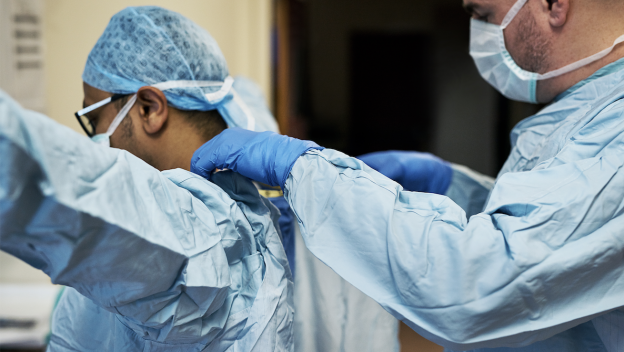
Understanding why only some patients develop severe COVID-19 following infection with SARS-CoV-2
We know there are marked differences in the way that COVID-19 impacts people’s physical health. For some, the virus presents with no symptoms, whereas for others it manifests as a severe, life-threatening illness. By using cutting edge medical research technologies, this project will determine the genetic basis of severe COVID-19.
It will contribute vital knowledge to address the pandemic and examine the factors that:
- May contribute to severity in older peoples
- Protect younger people from severe disease
- Render otherwise healthy younger people susceptible to COVID-19.
Early on, it was widely recognised that older people and those who are immune-comprised are at significantly greater risk. Yet, there have been many atypical cases – instances where patients who don’t fit a high risk profile have lost their lives. The specific genetic reasons why some people fare better than others is little understood, and finding this out has the potential to change the course of the pandemic.
A collaboration between UNSW Medicine, major Sydney hospitals and the Garvan Institute, this project will undertake crucial research to determine the genetic basis of severe COVID-19.
Researchers will analyse the DNA of children and adults who were diagnosed with the SARS-CoV-2 infection and developed severe symptoms, despite not having any pre-existing health conditions. The team will then investigate candidate gene variants and study their impact on immune cell function, mimicked in experimental models.




